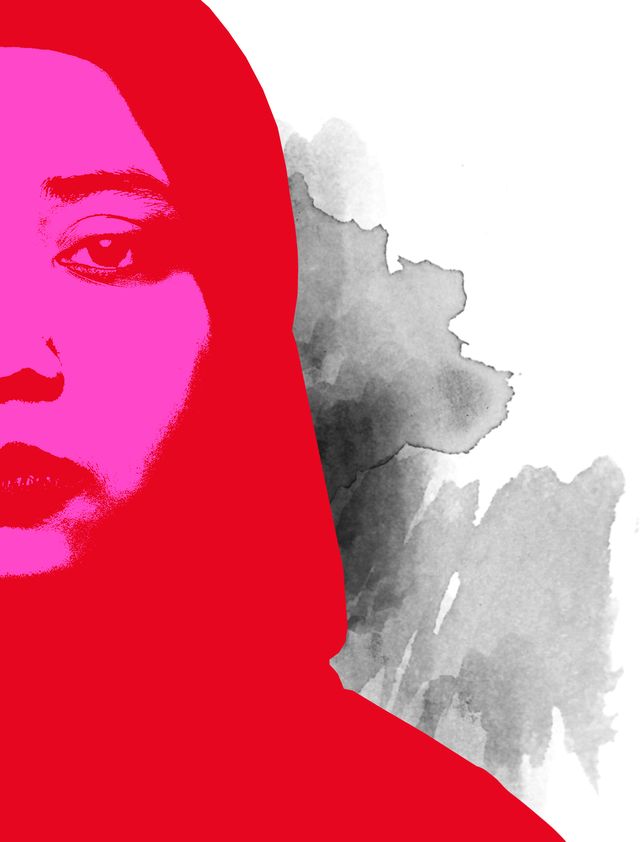For Muslims, Ramadan is a month of fasting from dawn to dusk, all while spiritually recharging. Fasting for long hours—while being mindful of practicing good habits—can be a daunting time for many mothers. Imagine having to look after toddler children, run errands, and prepare meals, all while on an empty stomach.
Growing up, my mother began preparing staple Ramadan foods like potato-filled samosas, chicken and veggie spring rolls, and minced meat patties in the weeks leading up to Ramadan. One hour before Iftar, the meal eaten after sunset, she started frying up those samosas and spring rolls.
Our family Iftar spread consisted of a variety of other fried and baked goods, as well as a mandatory curry for my dad. My mother would prep every food item, all while taking time out for prayers and other forms of worship. My father returned from work only moments before Iftar, which meant that my mom was also responsible for dropping off and picking up me and my siblings from school. Too often, Iftar crept up surprisingly quickly, and my mom would head back into the kitchen while simultaneously reminding us to finish our homework.
The mental and emotional toll Ramadan takes on mothers is too often dismissed. Ramadan is the holiest and most important month of the Islamic calendar, yet the worship and religious obligations are all but swept under the rug for mothers.
Women are expected to adjust their schedules so as not to neglect their household chores while fulfilling Ramadan traditions and fasting. They must make sure that everyone has fulfilling Suhoor (the before-dawn meal marking the beginning of the fasting period) and Iftar meals. Mothers work tirelessly in the kitchens for Iftar parties and it’s always mothers who get everyone in the home ready for Taraweeh, the nighttime Ramadan prayers.
Four years ago, I experienced my first Ramadan as a mother. As excited as I was to indulge in delicious Iftar meals with family and friends and worship during odd night hours, I was hit with the hard reality that this time around I’d be experiencing it all with a three-month-old son.
All I can say is that the struggle is real.
I felt depressed and guilty, because Ramadan didn’t seem as spiritual as before. It was the most challenging Ramadan of my life so far. At night, I was too tired to worship. The fear that my baby could wake up at any minute forced me to sleep while he was, and so I lost valuable time during my day that would otherwise be dedicated to worship. At Suhoor, I was too tired to prepare a fulfilling meal, so I nibbled on whatever was in the fridge. I was breastfeeding at the time, and fasting took a toll on my supply.
Ramadan didn’t feel right.
I was sad that I wouldn’t be able to reap the benefits of this blissful month, and frustrated with my time management. I couldn’t complain to anyone, because I didn’t want to seem like I wasn’t put together. When I attended Iftar parties, I saw how clean the homes were and how elaborately the tables were filled with deep-fried samosas, intricate sandwiches, fruit platters, variations of dipped wings, and rice pilafs.
These mothers were observing Ramadan flawlessly, why couldn’t I?
I finally called up my mother, and told her that I was too exhausted to stay up at night and pray because of my hectic schedule. She listened to me vent, and then gave me advice that has made every Ramadan since then easier. “Whatever struggle or hardship you are experiencing as a mother during the month of Ramadan counts as worship,” she said. “When you are feeling tired and lethargic after tending to the baby all day and then still finding the strength to somehow prepare an Iftar meal, that is part of your worship and you should never for a moment think that God does not recognize your efforts or struggles.” She reassured me that I would be rewarded for juggling motherhood while fasting.
Although I found comfort in my mother’s words, I realize now that the struggle of juggling motherhood during this month is an extension of some of the dominant, patriarchal practices of our culture. Why is it that for mothers the spiritual significance of Ramadan comes at the cost of mental health?
Many Muslim mothers feel that their mental wellbeing is secondary to their spiritual growth both inside and outside our religious community. We’re conditioned to believe that burn-out and exhaustion during Ramadan is “normal,” or even an expression of devotion. But no one ever peels back the curtain to see the price that we pay.
Ramadan is about self-improvement and strengthening our relationship with God. But all of these things can only be achieved successfully if Muslim mothers are given the support they need to fulfill their practice. Instead of sacrificing mental health for the sake of Ramadan, it’s time we recognize that moms need to feel their best while fasting.
Being surrounded by a community of Muslim mothers who can openly and transparently share their experiences makes it less daunting. Most importantly, a fulfilling Ramadan starts with recognizing that although the struggles seem innumerable, the reward will be countless.
Executive Editor at Muslim Girl
Zainab is a Muslim-American writer and entrepreneur. She is the Executive Editor at Muslim Girl. When she’s not working, she loves exploring cafes, reading poetry, and planning her next destination vacation.


